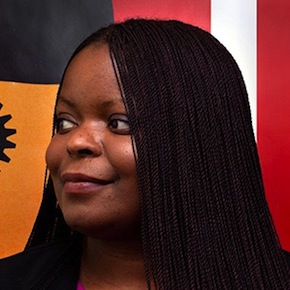Six by six
by Mark Reynolds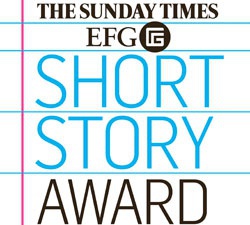 The Sunday Times EFG Short Story Award shortlist has been announced, and we’re delighted to share an extract from each of the stories. The six selected authors – three women and three men from five countries and three continents – also reflect the award’s stated aim to celebrate the best emerging writers alongside established names.
The Sunday Times EFG Short Story Award shortlist has been announced, and we’re delighted to share an extract from each of the stories. The six selected authors – three women and three men from five countries and three continents – also reflect the award’s stated aim to celebrate the best emerging writers alongside established names.
“What impressed me most about this year’s shortlist,” said judge Andrew Holgate “is the sheer variety of form and subject matter, from Colum McCann’s gripping piece of meta-fiction to the dreamlike qualities of Nicholas Ruddock’s ‘The Phosphorescence’ and the nostalgia of Edith Pearlman’s ‘Unbeschert’. Interwar New York, a hair stylist in Africa, a dacha near East Berlin and a research station in China’s nuclear weapons programme – quite some breadth, in a collection of exceptionally accomplished stories. Picking a winner will be immensely difficult.”
The award is the world’s richest prize for a single story. The winner – to be announced at a gala dinner on Friday 22 April – will be awarded £30,000, with each of the runners-up claiming a £1,000 consolation prize.
Here’s a taster:
The dacha
by Alix Christie
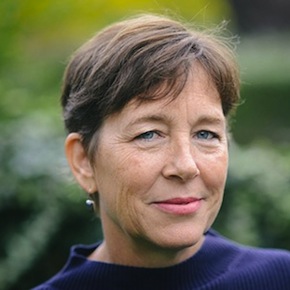 All of the sudden everybody Carla and Wolfgang knew was getting a ‘dacha’. This was about a year after they moved from New York to Berlin. Another German-American couple got one in the west, near Wannsee. Two expat families landed plots in a garden colony in the former east. Wolfgang, Carla’s west German husband, was not convinced. It meant, he said, that they were staying. Nobody bought a sandy lot featuring a cheap, asbestos-clad shack in the former GDR unless they were staying.
All of the sudden everybody Carla and Wolfgang knew was getting a ‘dacha’. This was about a year after they moved from New York to Berlin. Another German-American couple got one in the west, near Wannsee. Two expat families landed plots in a garden colony in the former east. Wolfgang, Carla’s west German husband, was not convinced. It meant, he said, that they were staying. Nobody bought a sandy lot featuring a cheap, asbestos-clad shack in the former GDR unless they were staying.
The one they bought at the end of the winter of 1999 looked like a lunar landing module, splashed down near a lake in the southeastern woods. To Carla it looked faintly Bauhaus, with its plate glass windows and wings holding up the cantilevered roof. The lake was part of a chain that curved around the city to the east, identical to the better-known string in the west. From the air these waterways enclosed Berlin like Rorschach lungs.
Wolfgang handled the transaction. He understood by then that follies of this kind were the price he paid for dreams she’d left behind. They were on their third diplomatic posting, or their fourth, if you counted Berkeley, where they had met in grad school, he in international relations, she in graphic design. Four countries, ten years, two kids. Carla had found the ad in the Berliner Zeitung and forced herself to make the call in her halting German.
“I am going just now to make the contract with a man,” answered a woman identifying herself as Angelika, in equally fractured English. “But maybe it doesn’t work.” There was the slightest pause. “You are American, I think?” Angelika Brandt said to take a look, and if they liked the dacha, call her back. “I really shouldn’t break the contract,” she repeated to Wolfgang the next day. Carla mouthed that he should offer more. Her husband rolled his eyes, but he complied.
Carla believed that kids had to know the feel of grass between the toes. She’d been raised in a verdant California suburb. After Delhi and Manhattan, time was running out: Ellie was eight already, Thomas nearly five. From the little prefab bungalow they could wander barefoot down a sandy track to the scruffy bank of a shallow lake. They could skinny dip, and know the creepy thrill of unseen things beneath them in the dark green water.
Angelika had spent every summer of her East German childhood in the Bungalow HW-22 that would soon be theirs. But they signed the papers in a cottage with a cellar that had been her grandparents’, across the lake. They drank coffee in her garden in the spring drizzle, slapping at mosquitoes the size of dragonflies. Angelika and her partner, Manny, had a boy Thomas’s age called Markus; they bridged the language gap with dirt and matchbox cars. Ellie sat saucer-eyed in Wolfgang’s lap, the two of them recoiling slightly beneath the flowered awning.
The news of her death
by Petina Gappah
By the time Pepukai emerged from the kombi at Highfield, it had just gone half past nine. She was thirty minutes late. Kindness had said she should come at nine or just before. She had followed the directions in the text message: take kombi to Machipisa, get off at Gwanzura, cross road, walk past Mushandirapamwe Hotel, go left after TM, go past market, saloon (that is how Kindness had spelled it) is next to butcher.
She found the salon with no problems. From the butchery next door came the whirring sound of a saw on bone. Everything about the salon spoke of distressed circumstances, the peeling paint outside, the worn chairs and dirty walls inside, the faded posters for Dark and Lovely and Motions Hair relaxers. This place made her usual hair place in Finsbury Park look like the Aveda in Covent Garden. Then again, none of the Nigerian or Kenyan women at her salon in London would have done her hair in long thin braids that lasted four months and cost only fifty dollars. If they had, it would have cost her five hundred pounds and two days or more, if she was lucky.
There were five women inside. Four were standing talking together in a huddle, while the fifth swept the floor. They could have been a representative sample of the variegated nature of local womanhood. One was large with a big stomach and bottom and skin like caramel, another was her opposite, thin and sallow with long limbs and dark gums, the third was medium-sized in everything, height, breasts, bottom, complexion, while the last was short and slight with delicate hands and bones and skin so light it was translucently yellow.
The one thing they all had in common was their hair. It was dressed in the same weave, a mimicry of Rihanna’s latest style with dark hair tumbling to the shoulder, and reddish hair piled up over one eye so that they had to peer out of the other to look at anything. It was a hairstyle that neutralized features rather than enhancing them; it suited none of them, giving them all the same aged look. Pepukai thought back to the Greek myths she had loved as a child. They looked like the Graeae might have done, had they had one eye each and had there been four of them.
Away from the group of four, the youngest of the women, not a woman at all, Pepukai realised, but a teenage girl of maybe sixteen or seventeen at the most, was sweeping the floor, leaving more hair behind her than she swept before her. Her hair was not in the Rihanna weave of her workmates, but was half done, with her relaxed hair poking out in wisps from one side of her head, while the other half was in newly-plaited braids.
All five looked up as Pepukai entered. She was the only customer. She felt their eyes on her, giving her that uniquely female up and down onceover that took in every aspect of her appearance and memorized it for future dissection.
What time is it now, where you are?
by Colum McCann
1
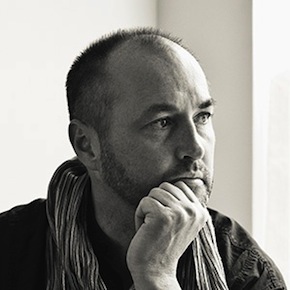 He had agreed in spring to write a short story for the New Year’s Eve edition of a newspaper magazine. An easy enough task, he thought at first. In late May he settled down to sketch out a few images that might work, but soon found himself struggling, adrift. For a couple of weeks in early summer he cast about, chased ideas and paragraphs, left a few hanging, found himself postponing the assignment, putting it to the back of his mind. Occasionally he pulled his notes out again, then abandoned them once more.
He had agreed in spring to write a short story for the New Year’s Eve edition of a newspaper magazine. An easy enough task, he thought at first. In late May he settled down to sketch out a few images that might work, but soon found himself struggling, adrift. For a couple of weeks in early summer he cast about, chased ideas and paragraphs, left a few hanging, found himself postponing the assignment, putting it to the back of his mind. Occasionally he pulled his notes out again, then abandoned them once more.
He wondered how he would ever push into the territory of a New Year’s Eve story – create a series of fireworks perhaps, drop a mirrored ball in a city, or allow snow to slowly scatter across the face of a windowpane? All the beginnings he attempted – scribbled down in notebooks – wrote themselves into the dark.
2
In early summer he landed on the idea that he could perhaps defy his own notions of what a New Year’s Eve story could achieve and tell a military tale, perhaps the portrait of a soldier somewhere far away, a young American, say, in a distant land. He could find himself, say, in a barracks on New Year’s Eve in Afghanistan, the simple notion of a marine – let’s say a young woman, slightly exhausted by war, sitting on the edge of a valley, in the cold, surrounded by sandbags, in the vast quiet, looking eastward, under a steel mesh of stars, all silence, not even the thrup of machine gun-fire in the distance, the grim perimeter of the soldier’s reality set against the possibility of what might be happening elsewhere, say, at home in South Carolina, say, a relentless suburb of no great distinction, say, a house gone slightly sour with the years, say, a broken drainpipe hanging down from the garage, say, a boy in the driveway, a young boy, in a striped shirt and torn jeans, with a bicycle lying forlorn at his feet, her brother, or her cousin, or perhaps even her son, yes, maybe her son.
3
Looking out into the Afghan night – although it would be better to be specific, and she could be facing the gothic dark of the Kerengal Valley, maybe even the ridge over Loi Kolay Village – she would draw herself into the savagery found at the outpost of every war, several layers of black pressing down on the already dark mountains, an area where even the stunted trees might seem as if they want to step off the cliffs and hurtle themselves to the valley floor, the darkness made again more visible by the layer of frost covering everything, the sandbags, the steel rebars, the machine gun, a Browning M-57, the impossible stretch of distance, the enormity of black sky, with everything so cold that the young Marine, let’s call her Sandi, wears a balaclava over her face, under her helmet, and the tip-ends of Sandi’s eyelashes have frozen and her lungs feel thick with ice…
Unbeschert
by Edith Pearlman
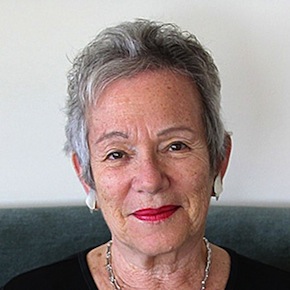
© Suzanne Kreiter
“Green, they are green, your eyes, they are the color of, maybe, I don’t know…”
“Schav,” she suggested from the other end of the couch, and then remembering that his Polish family’s accent was more guttural than hers, “Skchav,” she corrected. Pronounced either way, it was a chilled green soup made of sorrel leaves and broth, and egg yolks too if the cook felt generous.
“I was thinking of a particular feather, you see it on ladies’ hats, sticking up.” He was in the garment business, more or less. “But schav, I like that,” and he whistled; he was an expert whistler. She amused him. She might amuse him for quite a while. His brother had pointed out that she looked like a camel. Phil saw the resemblance but he refused to let it spoil his pleasure. A camel was a kind of opportunity… though if you had asked him to explain what he meant he would have had a hard time. But explaining what he meant was not Phil’s talent, and Phritzi could always rescue him. “A camel,” she said, not reading his mind but remembering reading his brother’s; “A camel can support an entire family. Its grunts have been determined to follow syntax…”
“Which tax?”
“Grammar, I mean,” she said quickly. She had made up that stuff anyway. “A camel can go without food and water for ages and has the highest intelligence of any mammal.”
“Higher intelligence than yours?”
“Higher even than yours,” she managed, though flattery was not one of her talents.
“A camel is an opportunity,” he said, still not knowing what he meant.
In those days opportunities bubbled like soup, like Phil Kaminski’s mother’s beef stew, did anyone care that it was mostly cabbage? Mrs. Kaminski was a notable cook. What couldn’t she concoct from a flanken of uncertain origins? – imagine what she could do with a camel. Phritzi Levant’s mother, on the other hand, managed to bump into everything immovable in the Levant kitchen without accomplishing much. Somehow, though, she and her five daughters managed to put a meal on the table every night – not much flavor, but abundant enough for the girls and whatever suitors were hanging around and also the great uncle who lived with them. Dinner – an opportunity for romance! – after all, what was the food of love? – food!
Outside of the kitchen, outside the building, there were avenues, literal ones and also avenues for self-improvement. Phil took a course in salesmanship. Phritzi took one in accounting (she was still only a book-keeper). Money wasmultiplying since the war-to-end-all-wars, enterprises were opening, retail was the new religion. In the new stores behind every display window mannequins enacted tableaux vivant – such poses, such clothes.
“Your blouse suits you,” said Phil. “In the advertising department they call that color celadon. What’s celadon?”
“A pale green ceramic glaze,” she said. The color of schav, she didn’t say. It was good to be associated with such a smart girl, he didn’t say. Especially one who didn’t make you feel ignorant.
The phosphoresence
by Nicholas Ruddock
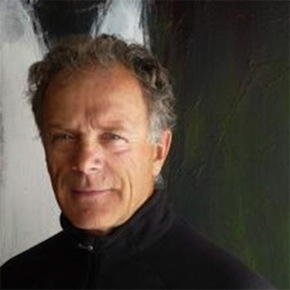 The two men left the apartment at 7 Rue Honoré Ugo just before sunrise, dressed identically in black shorts and muscle shirts, walking up the slight grade to the eastern end of Rue Rosetti to the gateway placed there by the City of Nice, the opening for which was cut into a stone wall topped with ornate and perforated wrought-iron in green and gold, reaching four metres high, and there they entered and turned and headed upwards, beginning to run, shoulder to shoulder up the switchbacking staircase, taking turns to the inside, nine steps, nine steps and so on, up and up into the semi-manicured pine forest of the ‘chateau’ as it was called (though no chateau was there), up through dawn crickets and the slip of pine needles covering the upper reaches of the stairs until they came to the road which ran in from the north, and empty was the road in the expected coolness of the hour and now they were going faster, still breathing easily, until they reached the crown of the hill, a paved parking lot concealed or embellished by an irregular ring of low bushes, and on they ran, circling now for their return, settling into the rhythm they had come to know as theirs, past the lookout on the western precipice from which, had they stopped, they would have seen, beyond the darkness of the sea, the airport Côte d’Azur, its runway lights a-glitter like a low constellation flattened onto the horizon, but they’d stopped for that view once, the first time – three nights ago – so now they passed on, shoulder to shoulder, from the parking lot down to the forest, to the dawn crickets, the stairway, the gate, Rue Rosetti again past stray cats shying away and cafés shuttered, running dead-centre now in the narrow streets and the half-blind alleys of the old city until they broke out into the Place Masséna, where black-and-white squares had been inlaid everywhere like giant chessboards, geometrically conjoined, the squares of the chessboards a-blur at the pounding speed of their passing, to the Promenade des Anglais where they turned westward, and already there was traffic, taxis, the first bus, and at last they stopped at the intersection of the Boulevard Gambetta and crossed to the sea-wall and looked down to the beach, their eyes accustomed to the dark and now, anyway, the first light was glimmering in from the east, and there they saw the two girls, they watched them as they came out of the water, swimming as early as they had been running, returning to their bundled clothes or sleeping-bags, lying down, somehow uncaught by the gendarmerie who swept the beaches till 3am – so, presumably, they had arrived after that – and the two men thought, wordlessly, simultaneously, that maybe these girls would do. If so, it would save them a lot of trouble.
The two men left the apartment at 7 Rue Honoré Ugo just before sunrise, dressed identically in black shorts and muscle shirts, walking up the slight grade to the eastern end of Rue Rosetti to the gateway placed there by the City of Nice, the opening for which was cut into a stone wall topped with ornate and perforated wrought-iron in green and gold, reaching four metres high, and there they entered and turned and headed upwards, beginning to run, shoulder to shoulder up the switchbacking staircase, taking turns to the inside, nine steps, nine steps and so on, up and up into the semi-manicured pine forest of the ‘chateau’ as it was called (though no chateau was there), up through dawn crickets and the slip of pine needles covering the upper reaches of the stairs until they came to the road which ran in from the north, and empty was the road in the expected coolness of the hour and now they were going faster, still breathing easily, until they reached the crown of the hill, a paved parking lot concealed or embellished by an irregular ring of low bushes, and on they ran, circling now for their return, settling into the rhythm they had come to know as theirs, past the lookout on the western precipice from which, had they stopped, they would have seen, beyond the darkness of the sea, the airport Côte d’Azur, its runway lights a-glitter like a low constellation flattened onto the horizon, but they’d stopped for that view once, the first time – three nights ago – so now they passed on, shoulder to shoulder, from the parking lot down to the forest, to the dawn crickets, the stairway, the gate, Rue Rosetti again past stray cats shying away and cafés shuttered, running dead-centre now in the narrow streets and the half-blind alleys of the old city until they broke out into the Place Masséna, where black-and-white squares had been inlaid everywhere like giant chessboards, geometrically conjoined, the squares of the chessboards a-blur at the pounding speed of their passing, to the Promenade des Anglais where they turned westward, and already there was traffic, taxis, the first bus, and at last they stopped at the intersection of the Boulevard Gambetta and crossed to the sea-wall and looked down to the beach, their eyes accustomed to the dark and now, anyway, the first light was glimmering in from the east, and there they saw the two girls, they watched them as they came out of the water, swimming as early as they had been running, returning to their bundled clothes or sleeping-bags, lying down, somehow uncaught by the gendarmerie who swept the beaches till 3am – so, presumably, they had arrived after that – and the two men thought, wordlessly, simultaneously, that maybe these girls would do. If so, it would save them a lot of trouble.
The human phonograph
by Jonathan Tel
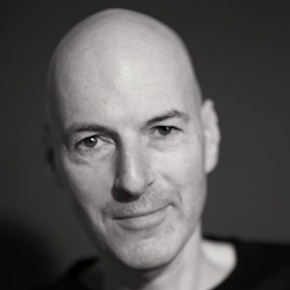 And as a figure in reflective helmet and articulated suit half-walks half-floats over the unreal surface she make-believes he is her husband, and the moon itself could perfectly well be Qinghai province for all anybody can tell, and one of the other translators, one who specializes in English, says Mr. Armstrong is saying, “A small step for man, a large step for man” and she shades her eyes with her hands so nobody can see her cry.
And as a figure in reflective helmet and articulated suit half-walks half-floats over the unreal surface she make-believes he is her husband, and the moon itself could perfectly well be Qinghai province for all anybody can tell, and one of the other translators, one who specializes in English, says Mr. Armstrong is saying, “A small step for man, a large step for man” and she shades her eyes with her hands so nobody can see her cry.
It has been seven years.
There are thoughts that cannot be spoken but can only be sung.
The summons comes in the form of a telegram to the secretary of her work unit. She has a week in which to pack.
They met in 1961 when she was a senior majoring in Russian at the Foreign Studies University and he was finishing his PhD in geology. They married and less than a year later he received the order. He was being sent to the far northwest to investigate a certain terrain – as much as he could say. He would remain there indefinitely. She was forbidden to accompany him. As if he were being sent into exile, or they both were, but it was presented as a reward, an opportunity to Serve the People… And in October 1964, Year of the Dragon, Mao proclaimed that China has the Bomb.
There is a photograph (it will not be made public till years later, after his death, and by then she will be back in Beijing) of scientists in identical suits raising their clenched left fists in a loyalty salute, on an open plain, under a bright sun. He is third from the left, over-exposed. Posed, of course. In reality they would have been cowering in a shelter, plugs in their ears and goggles over their eyes, while the earth shuddered.
The Bomb is a defense against the Soviet Union, and the irony is they helped us make it in the first place. As a schoolgirl she was taught to honor our fraternal ally. The class sang ‘Katyusha’ and ‘My Land’. By the time she went to university Russian was the language of the enemy. We understand them in order to defeat them.
Once a week she sends a letter to the base’s deliberately bland address: Factory 221, Mining Area 210, Qinghai. He replies when he can. He is forbidden to describe his work; he is forbidden even to describe the rocks beneath his feet. He writes about the weather. Today the temperature dropped to -20º. We are keeping warm in our goose down coats. (He is thinking of putting his arms around her, warming her!)… Today is a typical summer day, which is about the same temperature as spring in Beijing. (Here in the city the heat is oppressive… He is thinking of spring!)
Let the long gray boulevards of Beijing be memorials to themselves. Already the herds of cyclists, blurry on their Phoenixes and their Forevers, creak like ghosts.
Alix Christie is an author, journalist and letterpress printer. She apprenticed to two master printers and owns and operates a 1910 Chandler & Price letterpress. She holds a Master of Fine Arts degree from St Mary’s College of California and lives in London with her husband and two children. Her first novel, Gutenberg’s Apprentice, was published in 2014.
Petina Gappah is a Zimbabwean lawyer and writer with law degrees from Cambridge, Graz University and the University of Zimbabwe. Her debut story collection, An Elegy for Easterly, won the Guardian First Book Prize in 2009 and was shortlisted for the Frank O’Connor International Short Story Award. Her debut novel The Book of Memory is published by Faber & Faber.
Read our interview with Petina Gappah
Colum McCann is the author of six novels and three collections of stories. Born and raised in Dublin, he has been the recipient of many international honours, including the National Book Award, the International Dublin Impac Prize, a Chevalier des Arts et Lettres from the French government, election to the Irish arts academy, and an Oscar nomination. His novel Transatlantic was longlisted for the 2013 Man Booker Prize. He lives in New York.
Edith Pearlman has published more than 250 works of short fiction and short non-fiction in national magazines, literary journals, anthologies, and online publications. Her first collection of stories, Vaquita, won the Drue Heinz Prize for Literature; her second, Love Among The Greats won the Spokane Annual Fiction Prize. Her third collection, How to Fall, won the Mary McCarthy Prize in Short Fiction. She lives in Massachusetts.
Nicholas Ruddock was born in Ottawa. His debut novel The Parabolist was shortlisted for the Toronto Book Award and the Arthur Ellis Award. How Loveta Got Her Baby, a book of short stories, was published in 2014. He lives in Ontario.
Jonathan Tel’s published books include a story collection about Israelis and Palestinians, Arafat’s Elephant, which was shortlisted for the PEN/Hemingway Award; a novel, Freud’s Alphabet, and The Beijing of Possibilities, a story sequence that unfolds in contemporary China, which was shortlisted for the 2010 Commonwealth Writers’ Prize. Tel was a finalist for the Sunday Times EFG Short Story Prize in 2014, and the winner of the 2015 Commonwealth Short Story Prize.
Read all the shortlisted stories in full:
shortstoryaward.co.uk/shortlists/2016
The six shortlisted stories are published together in a Kindle Edition as Six Shorts 2016. Read more.
The Sunday Times EFG Short Story Award is open to entries of up to 6,000 words from fiction authors from anywhere in the world who have been published in the UK or Ireland. This year’s judging panel comprises broadcaster and novelist Melvyn Bragg; critic and commentator Alex Clark; novelist and short story-writer Mark Haddon; award-winning author Rose Tremain; and Andrew Holgate, Literary Editor of The Sunday Times; alongside the non-voting chair of judges Lord Matthew Evans, who co-founded the award in 2010. The previous winners are C.K. Stead, Anthony Doerr, Kevin Barry, Junot Diaz, Adam Johnson and Yiyun Li.

